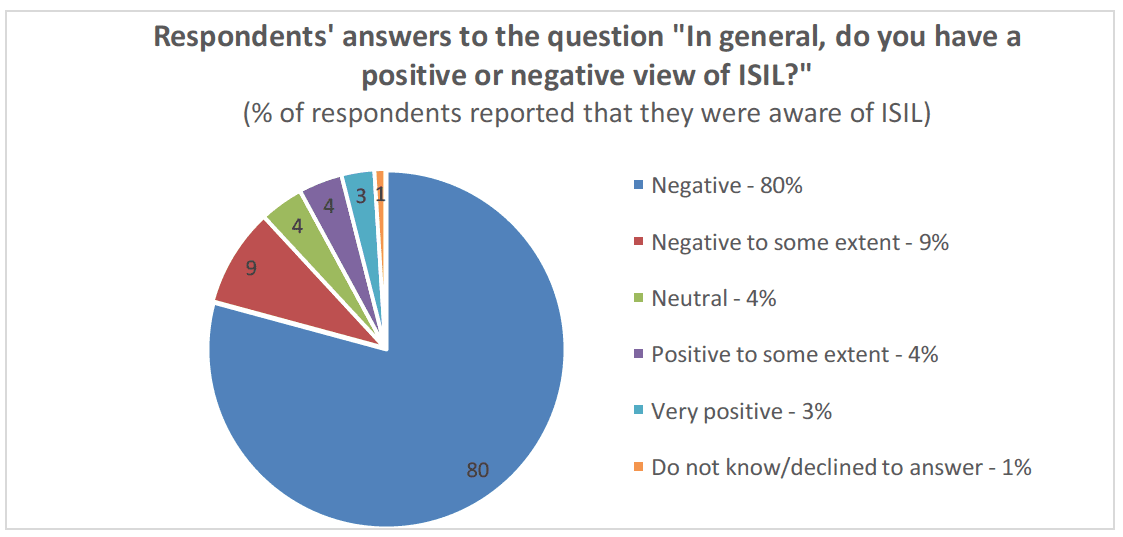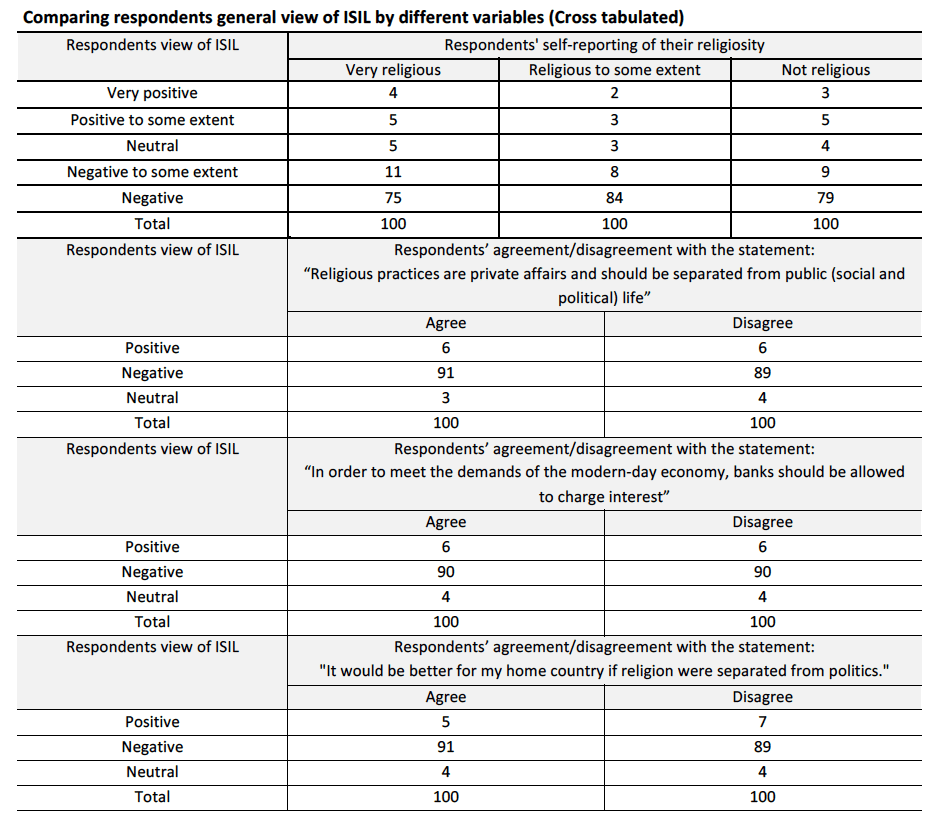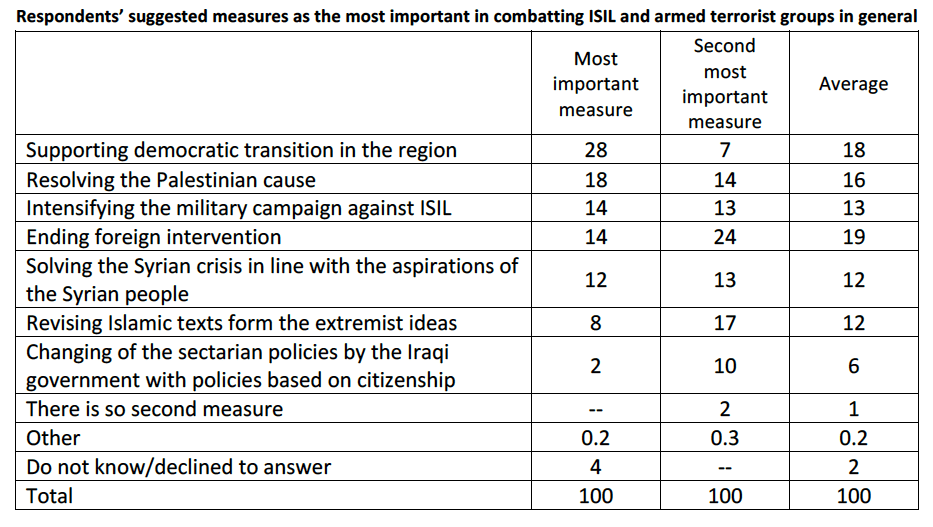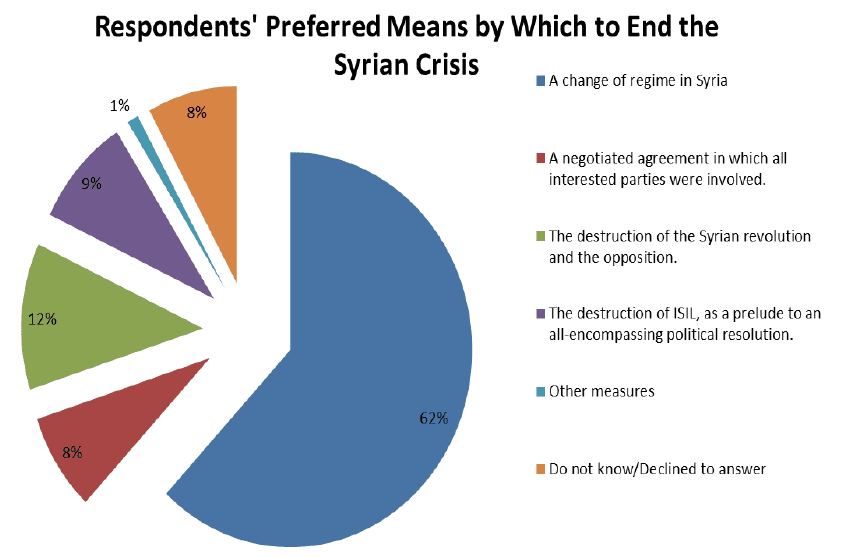Results in Brief
The Arab Center for Research and Policy Studies 2015 Arab Opinion Index (AOI) was based on 18,311 face-to-face interviews conducted in 12 different Arab countries including Algeria, Morocco, Tunisia, Mauritania, Egypt, Sudan, Palestine, Lebanon, Jordan, Iraq, Saudi Arabia and Kuwait. Together, they represent 90% of the population of the Arab League. Each of the country-specific samples were conducted using a randomized,self-weighted, multi-stage cluster method, providing margins of error of between 2% and 3%.
The Arab Opinion Index, is the largest public opinion poll of its kind in the Arab region. The latest survey, conducted between May and September 2015, affords scholars and policy makers the opportunity to understand how the Arab citizenry views the most pressing issues which face it today, including the growth of radical extremism and, in particular, the Islamic State of Iraq and the Levant (ISIL) and potential solutions to the Syrian crisis. This year’s Arab Opinion Index marks the fourth consecutive year that The Arab Center for Research and Policy Studies has conducted its yearly survey of Arab public opinion, allowing comparisons between current results and those obtained in earlier AOI polls since its launch in 2011.
Responses to the 2015 questions show that the Arab world as a whole is overwhelmingly opposed to ISIL, with 89% of respondents offering that they have negative views of the group, compared to only 7% of Arabs who view the extremist organization positively. Equally, the results of the survey show no significant correlation between support for ISIL and religiosity: favorable views of ISIL are equally prevalent among respondents who are “very religious” and those who are “not religious”, and also equally prevalent amongst opponents and supporters of the separation of religion and state. In other words, support for radical extremist organizations in the Arab world, where it exists, is rooted in political grievances within the Arab region and its conflicts, and not in religious ideology.


One of the over-arching political grievances in the Arab world over the past five years has been the continued suffering of the Syrian people. In fact, “sectarian tensions in Iraq and Syria” were cited by more than one fifth of respondents as a main factor which contributed to the rise of ISIL.
Results show that no consensus exists among the Arab people over the best measures by which to combat ISIL and armed terrorist groups in general. This reflects both the complexity of the issue and the sophisticated attitudes of the Arab public towards it. Respondents cited different measures as the most important in combatting ISIL, including: supporting democratic transition in the region (28%); resolving the Palestinian cause (18%); ending foreign intervention (14%); intensifying the military campaign against ISIL (14%); and solving the Syrian crisis in line with the aspirations of the Syrian people (12%) would effectively end the threat of terrorism.

In line with previous polls within the Arab Opinion Index, this year’s results show that a majority (62%) of the Arab public views a change in the Syrian regime as the ideal means by which to end the Syrian crisis. In other words, and comparing these findings to previous opinion polls, the Arab public at large remains sympathetic to the aims and objectives of the Syrian revolution.

To view the complete Arabic version of the Arabic Opinion Index Click Here
To download a PDF of the Arab Opinion Index Results in Brief Press Advisory Click Here
